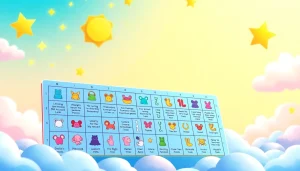Navigating the Emotional Landscape of a Relationship Breakup

Understanding the Stages of a Relationship Breakup
The end of a romantic relationship, often referred to as a relationship breakup, can be an incredibly challenging and emotional experience. Understanding the various stages of a breakup can provide clarity and help individuals navigate through the tumultuous waters of heartache. Emotions can run high, and recognizing these feelings can be the first step toward healing.
The Emotional Toll: Recognizing Your Feelings
Breakups typically elicit a wide range of emotions, including sadness, anger, confusion, and even relief. Each person may experience these feelings differently, but acknowledging them is crucial. It is important to understand that feelings of loss are completely normal; you are grieving not just the person, but also the shared life, plans, and dreams. Recognizing the emotional toll of the breakup allows individuals to validate their experiences and seek ways to cope effectively.
Common Stages: Grief and Acceptance
Many people find it helpful to refer to the stages of grief outlined by Elisabeth Kübler-Ross, which include denial, anger, bargaining, depression, and acceptance. While not everyone will experience all these stages, they provide a framework for understanding what many feel after a breakup:
- Denial: Many may initially refuse to accept the breakup, resulting in thoughts like “This can’t be happening.”
- Anger: It’s common to feel angry at the ex-partner, at oneself, or even at the circumstances surrounding the breakup.
- Bargaining: During this stage, you may find yourself thinking about ways to potentially save the relationship or how things might change.
- Depression: Feelings of hopelessness and sadness can be overwhelming as one confronts the reality of the loss.
- Acceptance: Ultimately, reaching acceptance means coming to terms with the breakup and allowing oneself to heal.
How to Cope with Emotional Distress During a Breakup
The emotional distress stemming from a breakup can be challenging, but coping strategies can help ease the pain. Here are several effective methods to consider:
- Express Your Feelings: Talk to friends or write in a journal. Expressing emotions can be a cathartic experience.
- Limit Contact: Consider taking a step back from your ex-partner to give yourself time to heal without reopening wounds.
- Engage in Activities: Distracting yourself with hobbies, exercise, or new interests can help shift your focus and elevate your mood.
- Seek Support: Friends, family, or support groups can provide a much-needed safety net during this difficult time.
Effective Communication Strategies for Ending a Relationship
Ending a relationship is not easy, and handling it with care and respect is essential. Effective communication can facilitate a healthier closure, whether you are initiating the breakup or responding to one.
Preparing for the Conversation: What to Consider
Before engaging in a breakup conversation, consider the following:
- Choose the Right Time and Place: Opt for a private and comfortable setting to promote a candid conversation.
- Plan What to Say: Think through your words to ensure clarity and empathy. Aim for honesty while being considerate.
- Expect Resistance: Understand that your partner may react emotionally, and be prepared for that possibility.
How to Express Your Feelings Respectfully
Communicating your feelings respectfully can make a significant difference in how the breakup is perceived:
- Use “I” Statements: Frame your feelings from your perspective, such as “I feel that we have grown apart” instead of “You never listen to me.”
- Be Clear and Direct: Avoid vague statements. Clearly state your intention to end the relationship.
- Listen Actively: Allow your partner to express their feelings and thoughts. This shows you respect their perspective.
Techniques for a Healthy Closure
A healthy closure can help both parties move on. Here are some techniques to ensure a respectful end:
- Be Honest: Share your feelings and reasons for the breakup candidly, ensuring clarity in understanding.
- Avoid Blame: Focus on your feelings rather than attributing guilt to your partner. This can prevent unnecessary hostility.
- Establish Boundaries: Discuss how you will interact moving forward. Setting clear boundaries can aid in healing.
Moving On: Steps to Heal After a Relationship Breakup
After a breakup, it can be difficult to envision a future without your partner. However, taking proactive steps toward healing can help mend emotional wounds and foster personal growth.
The Importance of Self-Care Post-Breakup
Self-care is paramount for recovery. Prioritizing your mental and physical health can greatly aid in the healing process. Some self-care strategies include:
- Engage in Physical Activity: Exercise boosts mood and helps alleviate stress. Whether it’s walking, yoga, or jogging, find an activity that you enjoy.
- Focus on Nutrition: Eating a balanced diet can influence your mood and energy levels. Nourish your body with healthy foods.
- Practice Mindfulness: Meditation, breathing exercises, or yoga can help ground your thoughts and stabilize emotions.
- Indulge in Hobbies: Rediscover interests that bring you joy and fulfillment, allowing for creative expression and relaxation.
Rebuilding Your Life: Finding Joy Again
Rebuilding after a breakup involves discovering new routines and finding joy outside the relationship. Here are a few steps to consider:
- Create New Routines: Establish schedules that incorporate self-care, creativity, and social interaction.
- Connect with New People: Engaging in social activities or groups can help you form new friendships and broaden your social support system.
- Set Goals: Focus on personal growth by setting new goals—be it career-related, educational, or personal development.
- Rediscover Passions: Reconnect with the things that make you happy, whether it’s art, travel, or sports.
Seeking Professional Help: When Counseling Can Help
Sometimes, the emotional burden of a breakup can be too heavy to bear alone. Seeking professional help can be a wise option for those struggling significantly:
- Find a Counselor: A trained emotional or psychological therapist can provide insight and strategies tailored to your healing journey.
- Group Therapy: Participating in support groups can foster connection and understanding with others who share similar experiences.
- Online Resources: There are many online platforms offering virtual therapy and support tailored to relationship challenges.
Reflecting on Lessons Learned from a Relationship Breakup
After the dust settles, reflecting on the relationship can yield valuable insights. These lessons pave the way for personal growth and healthier future relationships.
Understanding Personal Growth Through Heartbreak
Heartbreak can be a painful but enlightening experience. Reflecting on what went wrong and what you have learned can foster self-discovery and resilience:
- Identify Patterns: Consider recurring themes within your past relationships to recognize detrimental patterns.
- Assess Compatibility: Understand what qualities are essential for you in a partner to avoid mismatches in future relationships.
- Recognize What You Value: Heartbreak often clarifies your values and priorities in life and love.
Learning to Set Boundaries in Future Relationships
Establishing and communicating healthy boundaries in future relationships can prevent unhealthy dynamics. Here are essential steps:
- Identify Your Limits: Know your emotional and physical boundaries. Consider what you are and are not willing to compromise.
- Communicate Openly: Make it a habit to discuss boundaries early in new relationships.
- Respect Each Other’s Boundaries: A healthy relationship requires both partners to honor agreed-upon limits.
Turning Pain into Empowerment: Writing and Reflection
Journaling can be a powerful tool for processing emotions. Consider implementing writing as part of your recovery strategy:
- Journal Regularly: Document your feelings, experiences, and reflections to help clarify your thoughts.
- Write Letters: Consider writing letters to your ex, even if you never send them, to articulate feelings and foster closure.
- Create Vision Boards: Use visual aids to represent your hopes and aspirations for the future, steering your focus toward positivity.
Supporting Friends Through Their Relationship Breakups
When friends experience a breakup, it can be challenging to know how best to offer support. However, being there for someone during their emotional turmoil can significantly aid their healing process.
How to Be There for Someone Going Through a Breakup
To be an effective support system, consider the following strategies:
- Offer a Listening Ear: Sometimes, the best support is simply being available to listen without judgement.
- Validate Their Feelings: Acknowledge their pain and feelings, letting them know it’s okay to grieve.
- Encourage Self-Care: Suggest healthy coping strategies, encouraging them to prioritize their well-being.
Dos and Don’ts of Supporting a Friend in Need
While it’s essential to be there for friends, knowing what to do and what to avoid is also critical:
Dos:
- Do check in frequently to show your support.
- Do encourage them to engage in activities they enjoy.
- Do respect their need for space if they are not ready to talk.
Don’ts:
- Don’t dismiss their feelings or suggest they “move on” too quickly.
- Don’t compare their breakup to others’ experiences.
- Don’t pressure them into social situations before they are ready.
Encouraging Healthy Coping Mechanisms and Growth
Encouraging effective coping strategies can significantly aid a friend’s recovery:
- Promote Positive Activities: Encourage your friend to immerse themselves in hobbies, exercise, or volunteering.
- Support Counseling: Suggest professional counseling if they are struggling to cope.
- Celebrate Small Wins: Acknowledge and celebrate their progress in healing and personal growth.







